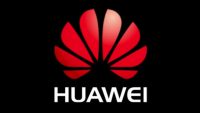Huawei to Sell Phones with Its Own OS and App Ecosystem
September 14, 2020
Next year, Huawei Technologies will begin to sell phones running its own operating system, HarmonyOS, and app ecosystem. After the Trump administration limited the Chinese company’s access to U.S.-originated components and chips built with U.S. technology, Huawei was cut off from all Google software. Nonetheless, in Q2, its phones were top sellers, beating out Samsung and Apple, mainly due to strong domestic sales. The beta version of its new phones will be available to app developers by the end of 2020.
The Wall Street Journal reports that Richard Yu, head of the company’s consumer electronics division, said that “the operating system could eventually be available to other smartphone vendors as well,” but he was likely referring to other Chinese phone vendors such as Oppo, Vivo or Xiaomi.

After the Trump administration accused Huawei’s 5G telecommunications gear of being capable of spying for China, the U.S. Commerce Department put it on a trade blacklist, and “tightened restrictions this year by stopping sales of any chips to Huawei made using U.S. technology, starving it of basic components to make phones and other equipment.”
Gartner estimated that “Huawei has enough chip inventories to last until early 2021.” Canalys analyst Mo Jia reported that, “if Huawei fails to ensure sufficient smartphone shipment next year, then the HarmonyOS for smartphones, which is planned to reach end-users next year, will only arrive to limited numbers of consumers,” adding that this would make it “a symbolic innovation, rather than a practical game changer.”
Huawei’s upcoming Mate 40 smartphone is expected to be its last device “equipped with its flagship Kirin chips.” MediaTek, a Taiwanese chip designer, applied to the Commerce Department for a license to continue selling chips to Huawei.
Engadget reports Yu announced that, “the developer beta of HarmonyOS 2.0 will be available today, although the mobile-compatible beta version won’t arrive until December.” Huawei has been working on its own operating system since “at least 2012,” and in August 2019, Yu said HarmonyOS was “faster and safer than Android.”
Initially, HarmonyOS powered “smart displays, wearables and smart speakers,” first with the Honor Vision smart TV, which also used Huawei’s own chips. Similar to Google’s licensing of Android, Huawei plans to “distribute OpenHarmony, an open-ish-sourced version of the software akin to AOSP [Android Open Source Project].”

No Comments Yet
You can be the first to comment!
Sorry, comments for this entry are closed at this time.